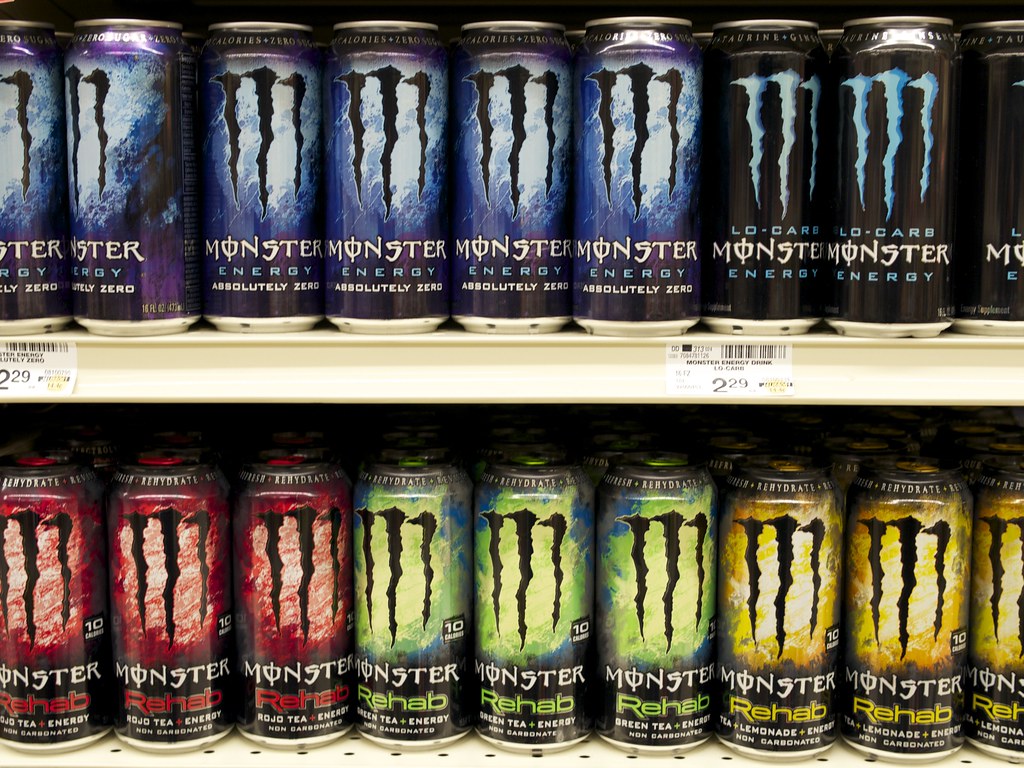United States News
See other United States News Articles
Title: Monster Win Is Good For Energy Drink Makers and Consumers
Source:
Reason
URL Source: http://reason.com/archives/2016/07/ ... n-good-for-energy-drink-makers
Published: Jul 30, 2016
Author: Baylen Linnekin
Post Date: 2016-07-30 16:30:01 by Deckard
Keywords: None
Views: 17471
Comments: 12
July has been a bad month for those leading the foolhardy charge against energy drinks. Earlier this month saw the quiet but welcome dismissal of a set of lawsuits against Monster, the maker of popular energy drinks. The suits, filed earlier this year by Morgan & Morgan, a Florida-based law firm, claimed just two cans of Monster could be deadly. "When the Monster lawsuit started earlier in 2016, the law firm Morgan & Morgan claimed two 16-ounce cans of Monster Energy contained a 'lethal dose' of caffeine and that 'overconsumption of energy drinks has led to heart attacks, strokes and even death,'" reported the news website Inquistr this week. "The Florida-based personal injury law firm has now asked the courts to dismiss their lawsuits." The news is particularly noteworthy because the media loudly trumpeted the purported dangers of energy drinks in the wake of the lawsuits. A Daily Beast piece on the lawsuits, typical of the tone of some reports, described the lawsuits' target under an ominous (and false) heading: "death juice." Most reports on the lawsuit's withdrawal, when they have appeared, have been of the demure, three-sentence variety. Ominous-sounding lawsuits make for good headlines. Dismissals no so much. As part of its campaign against Monster, Morgan & Morgan had launched a website seeking potential plaintiffs to challenge the energy-drink maker. "If you or someone you know has experienced heart problems, seizures, an irregular heartbeat, kidney failure, or any other adverse effects after drinking Monster Energy drinks," the firm's EnergyDrinksLawsuit.com website advertises, "you may be entitled to compensation." Maybe not. "The voluntary dismissal of these lawsuits, we believe, speaks volumes," Marc P. Miles of Shook, Hardy & Bacon, counsel for Monster Energy Company, said in a company press release. "We believe fairness dictates that the media now write about the dismissals." In addition to the demise of the Morgan & Morgan litigation targeting energy drinks, fairness suggests the need to cite the rising tide of research demonstrating that energy drinks aren't the threat many critics claim. In an excellent Food Safety News piece on the dismissal of the lawsuits, Dan Flynn points to a recent peer-reviewed study by University of Texas-Austin researchers, which, in the words of the study authors, concluded that the impact of "consumption of a commercially available energy drink.... was similar to the effect of coffee and water consumption." Nothing to see here. Move on. But the news isn't all rosy for energy-drink makers and consumers. The lawsuit was just the latest threat against energy-drink makers. An effort by a Chicago city councilman to ban energy drinks failed several years ago, a story I detailed here. And the recent dismissal of the case against Monster doesn't spell the end of litigation over energy drinks, as other lawsuits are ongoing. Monster is still embroiled in at least one caffeine-related lawsuit with the city of San Francisco. A class-action lawsuit in California, while recently scaled back by a federal court, is still proceeding. A lawsuit involving Monster and the New York State attorney general is also pending. These lawsuits take place against an ominous backdrop, as the FDA has spent several years quietly "investigating 'any and all products with added caffeine" since I first wrote those words in 2013. The good news? That investigation hasn't singled out energy-drink makers. The bad news? It's targeting all foods and beverages that contain added caffeine—from caffeinated gum and beef jerky to sodas and energy drinks. The FDA's ongoing investigation raises the specter of the agency's campaign against Four Loko and similar caffeinated beers, which resulted in the agency banning the direct addition of caffeine to alcohol beverages in 2010. Targeting energy drinks and energy-drink consumers has been a cottage industry. With any luck, the recent dismissal of lawsuits against Monster and the publication of new peer-reviewed research are harbingers that this is a cottage industry that is running out of energy. 
Post Comment Private Reply Ignore Thread
Top • Page Up • Full Thread • Page Down • Bottom/Latest
Begin Trace Mode for Comment # 12.
#6. To: Deckard (#0)
Caffeine is a drug in the stimulant category - the only time I had an espresso I was wired as shit. Anyone who says caffeine and alcohol should be legal but pot means the end of civilization ... should fuck off and die.
You are a blithering tool. Grow up, pothead. lol
lol Why do you even bother posting this content-free shit? Is it a cry for help?
Only sheep need help. Like welfare, drug addicts and court ordered rehab scumbags. You know, your hero's.
Why do you even bother posting this content-free shit?
It's "content free" to a dumb shit like you that hasn't the intelligence to see the content in it. Asshole.
There are no replies to Comment # 12. End Trace Mode for Comment # 12.
Top • Page Up • Full Thread • Page Down • Bottom/Latestthe FDA has spent several years quietly "investigating 'any and all products with added caffeine"
#8. To: ConservingFreedom (#6)
Anyone who says caffeine and alcohol should be legal but pot means the end of civilization ... should fuck off and die.
#9. To: GrandIsland (#8)
You are a blithering tool. Grow up, pothead.
#10. To: ConservingFreedom (#9)
Is it a cry for help?
#11. To: GrandIsland (#10)
#12. To: ConservingFreedom (#11)
Replies to Comment # 12.
[Home] [Headlines] [Latest Articles] [Latest Comments] [Post] [Mail] [Sign-in] [Setup] [Help] [Register]
